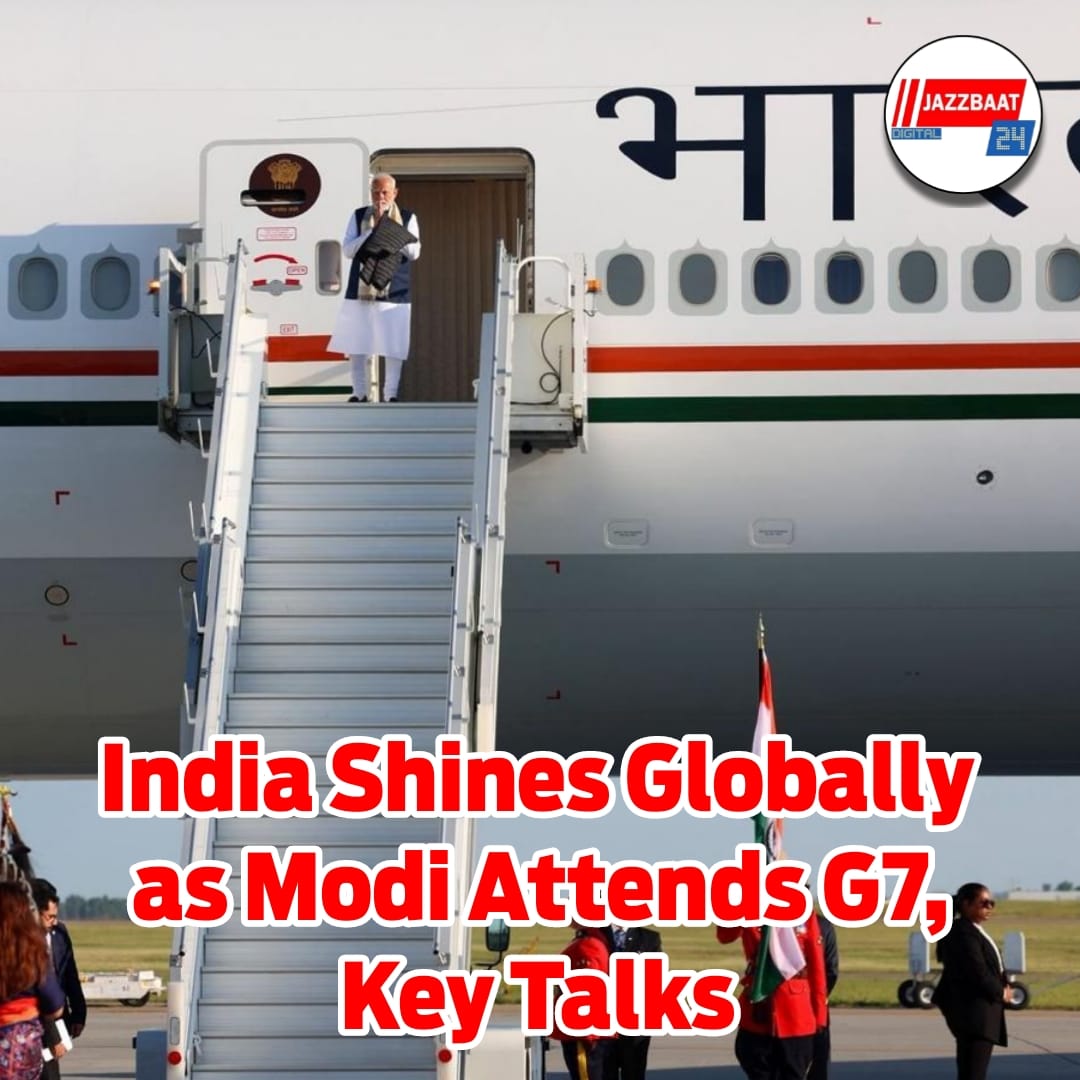
Dipanjan Mondal
17 June, 2025:
Prime Minister Narendra Modi arrived in Canada to attend the 51st G7 Summit, being held at Kananaskis, marking his first visit to Canada in nearly 10 years. The Summit will bring leaders together to meet and discuss significant issues related to the world’s security in particular: security for energy, technology as a driver of economic growth, and sustainable development.
The G7 Summit will take place during a time of escalating tensions in international relations, not the least of which involve tensions arising from the current conflict involving Iran and Israel, and a trade war resulting from U.S. President Donald Trump’s imposition of tariffs.
While in Canada, PM Modi plans to conduct a number of bilateral meetings while at the Working Summit. These interactions will take place at an important time, only a few short weeks after India executed Operation Sindoor, which was a military action undertaken to destroy terror infrastructure in Pakistan and Pakistan-occupied Kashmir, in retaliation for the recent terror attacks in Pahalgam on April 22.
The fact that PM Modi is participating in this important Summit further illustrates the active role India continues to play on the world stage, and the need to play this role at this important normally turbulent time in current global politics.
The visit has captured global headlines as it is Prime Minister Modi's first time in Canada since diplomatic relations soured between the two countries following the 2023 killing of Khalistani terrorist Hardeep Singh Nijjar.
The invitation from Canadian Prime Minister Mark Carney to Modi for the G7 Summit is viewed as a strong signal of the new government's desire to mend relations with New Delhi after they hit a historic low with Nijjar's killing.
The South Asian country is not a member of the G-7, a grouping of seven of the world’s richest countries, comprising the US, UK, Germany, France, Italy, Canada and Japan. But this will be India‘s 12th time participating and Modi’s sixth consecutive invitation to the summit.
Addressing G7 leaders, Canadian PM Mark Carney said, "We have to change with the times and to build a better world. And some of you, such as you, Mr President (Donald Trump), have anticipated these massive changes and are taking bold measures to address them. All of us around this table are reinforcing our militaries and security services for the new world. But we all know that there can be no security without economic prosperity and no prosperity without resilience. And in a world where shocks flow across the borders, that resilience comes from cooperation, cooperation that starts around this table, cooperation that can lead to a new era of prosperity, energy security and critical minerals, artificial intelligence, quantum, combating human smuggling and transnational repression. So we will have open, frank discussions over the course of the next two days. We might not agree on absolutely every issue, but where we will cooperate, we will make an enormous difference."
On the other hand, the Group of Seven nations threw its weight behind Israe,l stating that the country has the full right to defend itself, condemning Iran as “the principal source of instability and terror” in the region. “We affirm that Israel has a right to defend itself. We reiterate our support for the security of Israel,” G7 leaders said in the statement. “Iran is the principal source of regional instability and terror,” the statement added and said the G7 was “clear that Iran can never have a nuclear weapon.”
Meanwhile, US President Donald Trump left the Group of Seven summit abruptly, departing a day early amid heightened tensions between Israel and Iran and urged all Iranians to “immediately evacuate” Tehran. In a post on Truth Social, he said that Iran should have “signed the deal” to curb nuclear weapons development, calling the current situation “a shame”.
The Kremlin today said that it agreed with U.S. President Donald Trump that it had been a mistake to expel Russia from the G8 in 2014, but that the format had lost practical significance for Russia and the G7 looked pretty useless now.
The Congress on Tuesday took a swipe at Prime Minister Narendra Modi after US President Donald Trump departed the G7 Summit in Canada a day early, calling it a "setback for self-styled Vishwaguru's huglomacy."
The party also raised questions about the government's silence on Pakistan Army Chief General Asim Munir’s ongoing visit to the United States, calling it an "outrageous American outreach to Pakistan."
“President Trump has left the G7 Summit a day before the G7 outreach with eight other countries that includes India begins. A setback for self-styled Vishwaguru's Huglomacy,” AICC general secretary (communications) Jairam Ramesh posted on X.